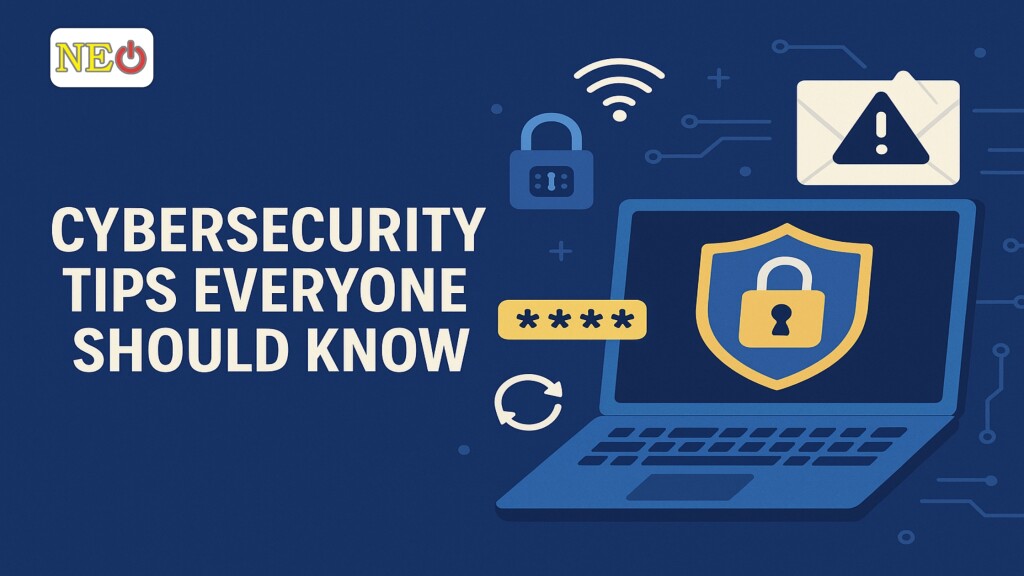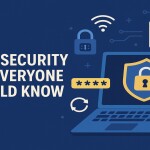In today's digital world, cybersecurity is no longer just a concern for IT professionals — it's everyone's responsibility. With cyber threats becoming more sophisticated and frequent, protecting your personal and professional data is essential. Whether you're browsing the web, working remotely, or simply checking emails, following some basic cybersecurity practices can go a long way in keeping you safe online. Here are the most important cybersecurity tips everyone should know.
1. Use Strong, Unique Passwords
Weak passwords are one of the easiest ways for hackers to gain access to your accounts. Use complex passwords that include a mix of upper and lowercase letters, numbers, and special characters. Avoid common phrases, names, or dates. Better yet, use a password manager to create and store strong, unique passwords for each of your accounts.
2. Enable Two-Factor Authentication (2FA)
Two-factor authentication adds an extra layer of security by requiring a second form of verification — such as a code sent to your phone — in addition to your password. Even if someone gets your password, 2FA can stop them from accessing your account.
3. Keep Your Software Updated
Outdated software, including apps, browsers, and operating systems, can have security vulnerabilities. Always install updates and patches as soon as they're available. Turn on automatic updates when possible to ensure you’re always protected against the latest threats.
4. Be Cautious with Emails and Links
Phishing attacks often come through email or text messages. Be skeptical of unsolicited messages, especially those that urge you to click a link, download a file, or provide personal information. Verify the sender’s email address and never open attachments from unknown sources.
5. Use Secure Wi-Fi Networks
Avoid using public Wi-Fi for sensitive tasks like online banking or shopping. If you must use public Wi-Fi, use a Virtual Private Network (VPN) to encrypt your connection and protect your data from prying eyes.
6. Back Up Your Data Regularly
Data loss can happen due to ransomware attacks, hardware failure, or accidental deletion. Regularly back up important files to an external hard drive or cloud storage. Make sure backups are secure and tested occasionally.
7. Protect Your Mobile Devices
Smartphones and tablets can be just as vulnerable as computers. Set a strong password or biometric lock, avoid downloading apps from unknown sources, and enable remote tracking and wiping features in case your device is lost or stolen.
8. Limit Personal Information Shared Online
Cybercriminals often gather information from social media to craft convincing phishing attacks or to guess passwords. Be mindful of what you post publicly and review your privacy settings regularly.
9. Be Aware of Social Engineering
Hackers sometimes manipulate people rather than systems. Be cautious of phone calls, messages, or even in-person conversations where someone tries to get sensitive information from you. When in doubt, verify the identity of the person requesting the information.
10. Educate Yourself and Others
Cybersecurity is a shared responsibility. Stay informed about the latest threats and best practices, and help others understand the importance of online safety. Encourage your family, friends, and coworkers to adopt these habits too.
Conclusion
Cybersecurity may seem technical, but many protective measures are simple and effective. By staying vigilant and adopting these basic cybersecurity tips, you can significantly reduce your risk of becoming a victim of cybercrime. In an age where digital threats are everywhere, staying informed and prepared is your best defense.









